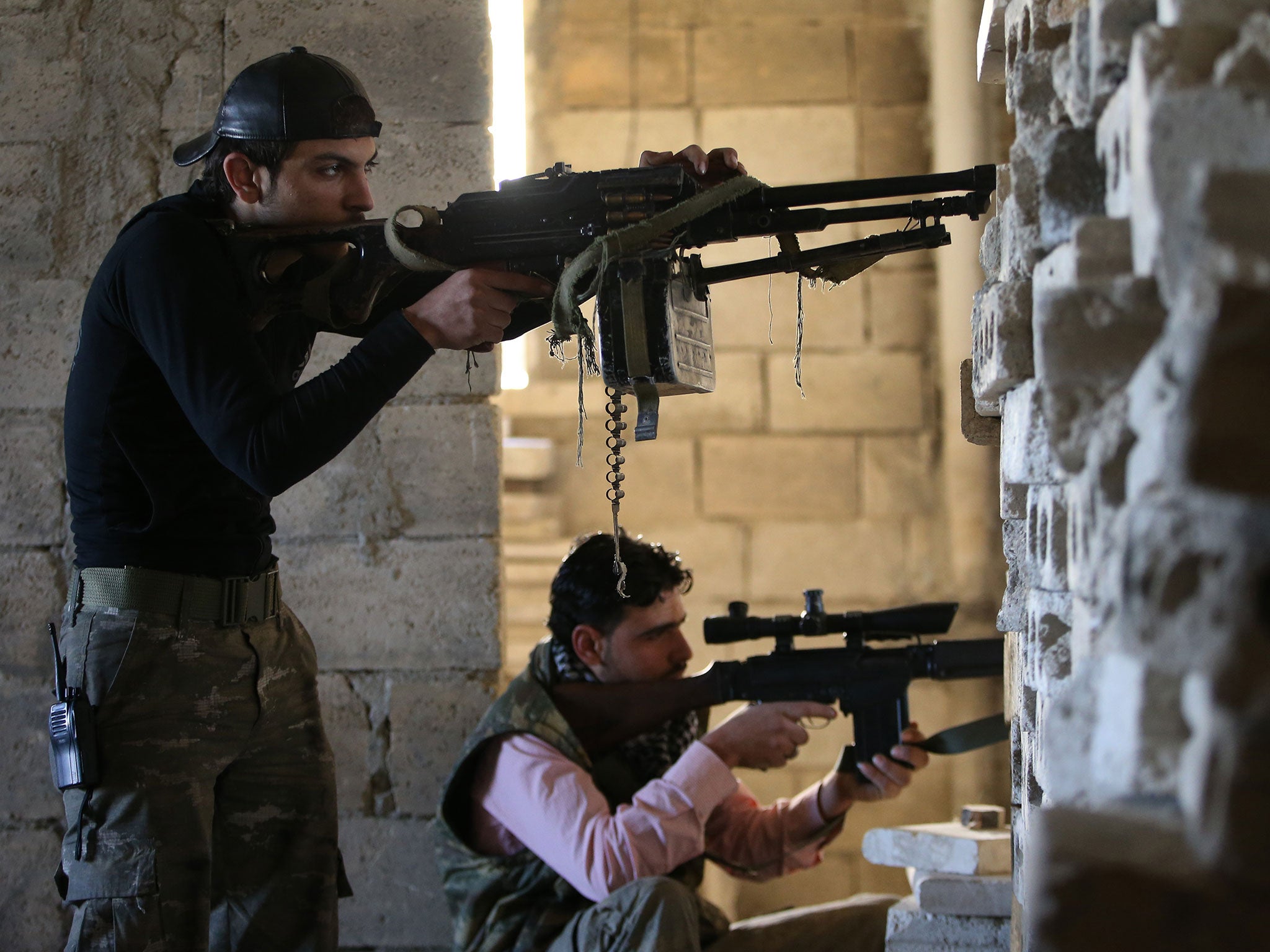Work with Russia in Syria and we may see rewards in Ukraine
Russian airmen inscribing ‘For Paris’ on a bomb was a plea to be accepted as part of the team


So fast have events in and around Syria been moving in recent weeks that the bigger picture and the longer term have tended to be lost amid the hectic here and now.
Of the latest distractions, one – David Cameron’s speech today, in which he is expected to argue for Britain to join the alliance striking Isis forces in Syria from the air – is little more than a detail in that bigger picture, albeit a misguided one.
The other – Tuesday’s shooting down by the Turkish air force of a Russian military jet – was infinitely more serious in its implications. A stand-off – or worse – between Russia and Turkey threatened – and still threatens – a halt to the only hopeful development linked to the Syria imbroglio for several years: the multilateral talks held in Vienna two weeks ago, at Russia’s instigation.
As is sometimes the case, though, a glimpse of the abyss may have prompted second thoughts. And while initial responses from Turkish and Russian leaders were fierce – Vladimir Putin memorably said that Russia had been “stabbed in the back” by “an accomplice of terrorists” – a reference to Turkey’s support of certain Syrian rebel groups – several things that might then have happened did not happen.
It was left mostly to outside observers to point out that this was the first armed clash between a Nato country and Russia for more than 50 years. Nato did not treat the incident as an attack that would warrant invoking Article 5. Russian officials clarified that when they mentioned retaliation, they did not envisage a military response. Military-to-military relations were suspended, and the Russian Foreign Minister shelved a trip to Ankara, but diplomatic relations were not cut. And, in a happy turn of fate, one of the Russian pilots was reported to have been rescued. President Obama, for his part, while supporting Turkey verbally, made a very public call for “de-escalation”.
All of which means that, although ill-feeling between Russia and Turkey will persist, the fallout could have been a great deal worse. More significantly, though, it also suggests that Russia’s investment in a Syria settlement is serious and that it will not allow either its military or its diplomatic efforts to be thwarted, however unjust it feels the loss of its plane to be. The stakes for Russia, and for Putin, are higher.
Russia’s intervention in Syria was in part a gamble: that the Russian military could achieve something with its modernised air power, and that its use of force would galvanise diplomacy. But it may have been less a gamble than desperation. Russia’s role as anything more than a second-tier regional player was at risk. Not only was the survival of its one Middle Eastern ally, President Bashar al-Assad, threatened, so – still more important – was the very existence of the Syrian state. And if the state were to collapse, Russia envisaged long-term disorder of the sort that plagues Iraq and Libya, along with the very same threat to Russia’s security as the UK and France see from their citizens who have gone to fight with Isis.
At stake for Russia was its sense of itself as a power capable of operating internationally; but also its sense of itself as inherently European. One image stands out from the past two weeks – and Kremlin spin-doctors surely meant it to. This was the sight of Russian airmen inscribing “For Paris” (in Russian) on one of the bombs attached to their plane. A whole essay could be written on the meaning of that scene, but – in summary – what it said was that Russia sees itself as part of the Western world in the fight against militant Islam. Above all, it was a plea to be accepted as part of the team.
The chief obstacle to this, of course, from the Western side is Ukraine: Russia’s annexation of Crimea; its meddling in the east of Ukraine, and its supposed culpability in the downing of MH17. The sanctions that were the US and EU response are still in force. But how soon, if ever, should the West “move on”? If it acknowledges Russia as the chief intermediary and power-broker over Syria, would that amount to betrayal of Ukraine?
Thus far, the West has been cautious. The US made the first move in May, when John Kerry stopped over for talks with Putin. David Cameron met Putin on the margins of the G20 in Antalya two weeks ago. François Hollande has travelled to Washington and Moscow in the wake of the Paris attacks. The impression each likes to give is that Syria and Ukraine belong in separate compartments, and that, with Syria, Russia is moving closer to the Western position on the future of Assad and the fight against Isis.
This is self-deception of the first order: it is the West that has moved, and by quite a long way in two years. But if such a stratagem helps break the deadlock, either in relations between the West and Russia, or over Syria, so be it. There will be no progress towards peace in Syria without Russia.
Yet it is also an error, to my mind, for the West to read Russia’s intentions towards Ukraine as it does. What if Russia is actually trying to disengage without so far as possible losing face and without inflaming the passions of Russia’s nationalists? And what if a by-product of the Syria intervention is to allow this to happen? It would be inconsistent, would it not, for Moscow to insist – as it does – that Syrians must determine the future of their country, while denying the same to Ukraine.
So, yes, the West needs to re-engage with Russia as the best hope for peace in Syria. But it does not need to keep Ukraine in another box. There is a link between the two, but not the one we suspect; Russia can be brought in from the cold on both fronts at once.
Join our commenting forum
Join thought-provoking conversations, follow other Independent readers and see their replies
Comments
Bookmark popover
Removed from bookmarks